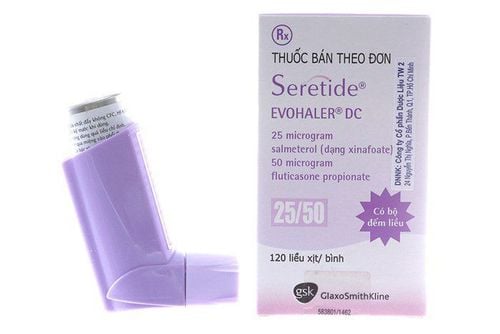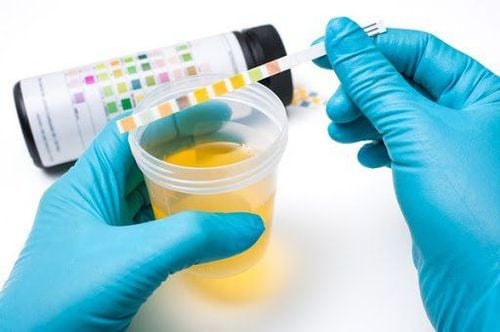This is an automatically translated article.
Ginger has anti-inflammatory properties and is often touted for its ability to aid digestion and help relieve nausea or motion sickness. In addition, this herb can help circulation and relieve circulatory stagnation. Ginger has a spicy flavor that kids may or may not like. When babies turn 9 months old and start eating solid foods, parents can add ginger to their baby's diet.
1. Can children eat ginger?
The health benefits of ginger for babies are abundant but not widely known. Although ginger is most commonly used to relieve coughs in infants, ginger may also offer other benefits.
Relieves Bloating Bloating or problems associated with gas retention in the digestive tract can be uncomfortable not only for adults but also for babies. The use of ginger to treat stomach problems, mainly the presence of gas in the intestines, has been around for a long time. Giving ginger to children can significantly help reduce excess gas in the digestive tract.
Make the liver healthy The human liver is one of the largest and most powerful organs in the body, as it is responsible for metabolizing almost every compound. However, when a child's liver is still developing, food poisoning is most likely to occur and quickly becomes complicated. Ginger extract enhances the liver's tolerance and protects the body against toxins and harmful microorganisms.
Boost immunity When the weather changes, babies are more susceptible to seasonal illnesses such as flu, colds and coughs. Ginger helps strengthen the immune system as the first line of defense to protect the body. Of all the respiratory problems, parents are most concerned about bronchitis. When this happens, the mucous membranes of the airways become inflamed, making it difficult to breathe. Give your child a mixture of dried ginger powder, pepper, clove powder, and honey three times daily to boost immunity.
Soothes whooping cough Pertussis is contagious, prolonged coughing can damage lung parenchyma. A baby's respiratory system is very fragile and needs something to promote and protect it. Adding a small amount of a mixture of ginger juice and honey can help an infant recover from a cough.
Relieves Nausea and Motion sickness Motion sickness can even happen to babies when they are traveling in cars or planes. If your baby faces nausea and motion sickness, giving him a small amount of ginger can help keep food in the stomach and reduce the risk of vomiting and acid reflux.
Stomach pain relief To ease an upset stomach give your child some ginger juice mixed with some lemon juice to help soothe the stomach. Repeating it a few times per day can significantly reduce these annoying problems.
Supports the functioning of the digestive system Ginger has the ability to effectively fight digestive problems in babies. Indigestion, bloating, and constipation can all be effectively prevented by adding ginger in your baby's food.

Trẻ em ăn gừng được không là thắc mắc của nhiều bậc cha mẹ
2. How to let children eat ginger
Here are some recipes that combine with ginger that parents can refer to.
Ginger tea Take a few pieces of ginger and put it in a pan of water. Let the water come to a boil. Then let the mixture boil for a few minutes over low heat. Turn off the heat and strain out the ginger to get the liquid. Give your child ginger tea twice a day.
Ginger Milk If your child has already started drinking cow's milk, you can add dried ginger powder. This is a great remedy for colds and coughs in children.
Ginger Essential Oil Boil a few pieces of ginger in water. When the steam starts to fly, tell me to inhale the ginger vapor. This method is considered to be safer than other aromatherapy methods currently on the market
Ginger candy If the child is older than two years old, the child can suck on ginger candy to reduce colds and flu and motion sickness.
3. Safety measures to take when giving ginger to children Before incorporating ginger in their children's food, keep the following in mind:
Many parents combine honey with ginger to give their children Drinking ginger water concocted easier. This should not be followed, especially for children younger than a year old. Allergy to ginger is rare, but it's always better to stay safe and pay attention to any signs that may indicate an allergic condition. Check for an allergic reaction to ginger for 4 days before actually giving it to your child as a regular ingredient. There are ways to ensure that your baby gets all the medical benefits of ginger. We recommend that you consult your pediatrician before giving ginger to your child.
For children to be healthy and develop well, it is necessary to have a nutritious diet in terms of quantity and quality balance. If children are not provided with adequate and balanced nutrients, it will lead to diseases of excess or lack of nutrients, which adversely affect the comprehensive development of children in terms of physical, mental and motor skills.
Children need to provide enough zinc / day for them to eat well, reach the correct height and weight and exceed the standard. Zinc plays a role in affecting most biological processes taking place in the body, especially the breakdown of nucleic acids, proteins... Organs in the body when zinc deficiency can lead to a There are a number of diseases such as neurological disorders, irritability, etc. Therefore, parents need to learn about the role of zinc and guide them to appropriate zinc supplements for their children.
In addition to zinc, parents also need to supplement their children with other important vitamins and minerals such as lysine, chromium, B vitamins,... errands.
Please regularly visit Vinmec.com website and update useful information to take care of your baby and family.













